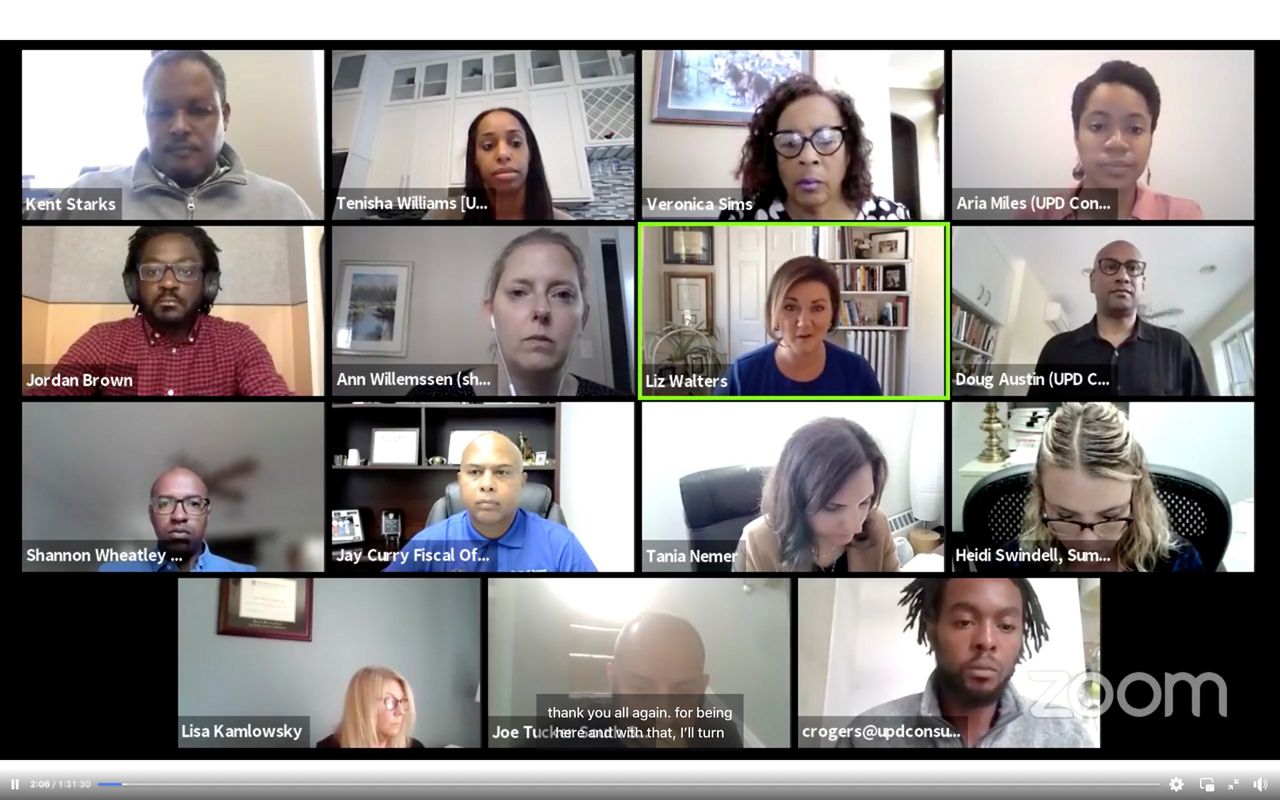SUMMIT COUNTY, Ohio — A special committee Summit County Council convened in 2021 released findings this week from the second phase of an initiative to promote racial equity across the county.
The committee was formed after County Council declared racism a public health crisis and was tasked with developing policies and practices that are “antiracist, diverse, equitable and inclusive (ADEI),” organizers said.
UPD Consulting, headquartered in Baltimore, was hired to assist the group, which comprises elected officeholders, representatives from nonprofits and community organizations, and other community members.
Summit County Councilwoman Veronica Sims and Council President Elizabeth Walters, who have led the effort since its inception, shared the results with council during its Monday night meeting. An executive summary and full report are now available online. County Council’s meetings also can be viewed online.
“Some started this work a long time ago, some have entered the journey just recently, some as recent as the last two years,” Sims said of the committee’s work. “And to be quite frank, some just entered yesterday, and some may not even enter at all.”
Early in the process, the committee gathered information internally from county office holders through interviews, anecdotal insights and various reports, Sims said, to learn whether those interviewed truly believe racism is a health crisis.

“I am honored to submit to this body today that it was truly a blessing to realize that they realize it, too,” she said. “So that made the work a little easier to begin.”
Both Sims and Walters reiterated the initiative is not intended to be an indictment of an individual, or group.
“But it is about the unjust systems that have continued to harm beloved members of segments of our community, particularly Black and Brown communities,” Sims said, adding that those systems have had “an enormous adverse impact upon the health, safety and overall wellness of those communities.”
The committee applied a “4C” system UPD created to assess community, commitment, culture and climate to help “diagnose” where Summit County agencies stand in the process of becoming an anti-racist, multicultural organization, organizers said. To assess the metrics, information was gathered through surveys, focus groups, interviews and a review of 50 “key documents,” organizers said.
The online report included the following recommendations:
- Commit to ongoing action
- Dedicate resources to equity
- Leverage collaboration and partnerships
- Leverage data collection, use and reporting
During the course of the work, more than 800 people participated, from county staffers to contractors and external partners, amounting to 100% participation across every county agency, Walters said.
In the next phase, the size of the committee will be reduced and it will work to create a clear roadmap, set goals and establish accountability, she said.
The county launched previous initiatives to address racism.
In 2017, County Executive Ilene Shapiro formed an advisory council on diversity and inclusion, to look at the county’s employment, contracting and purchasing practices, and examine representation on commissions and boards. Effort was also made to create a more inclusive workplace through the county’s minority contractor capital access program and the inclusion marketplace.
“The racism-as-a-public-health-crisis committee is a progression of work that has been ongoing in my office and the county for the past few years,” Shapiro said. “Summit County is unequivocally committed to becoming an antiracist, diverse, equitable and inclusive workplace.”



